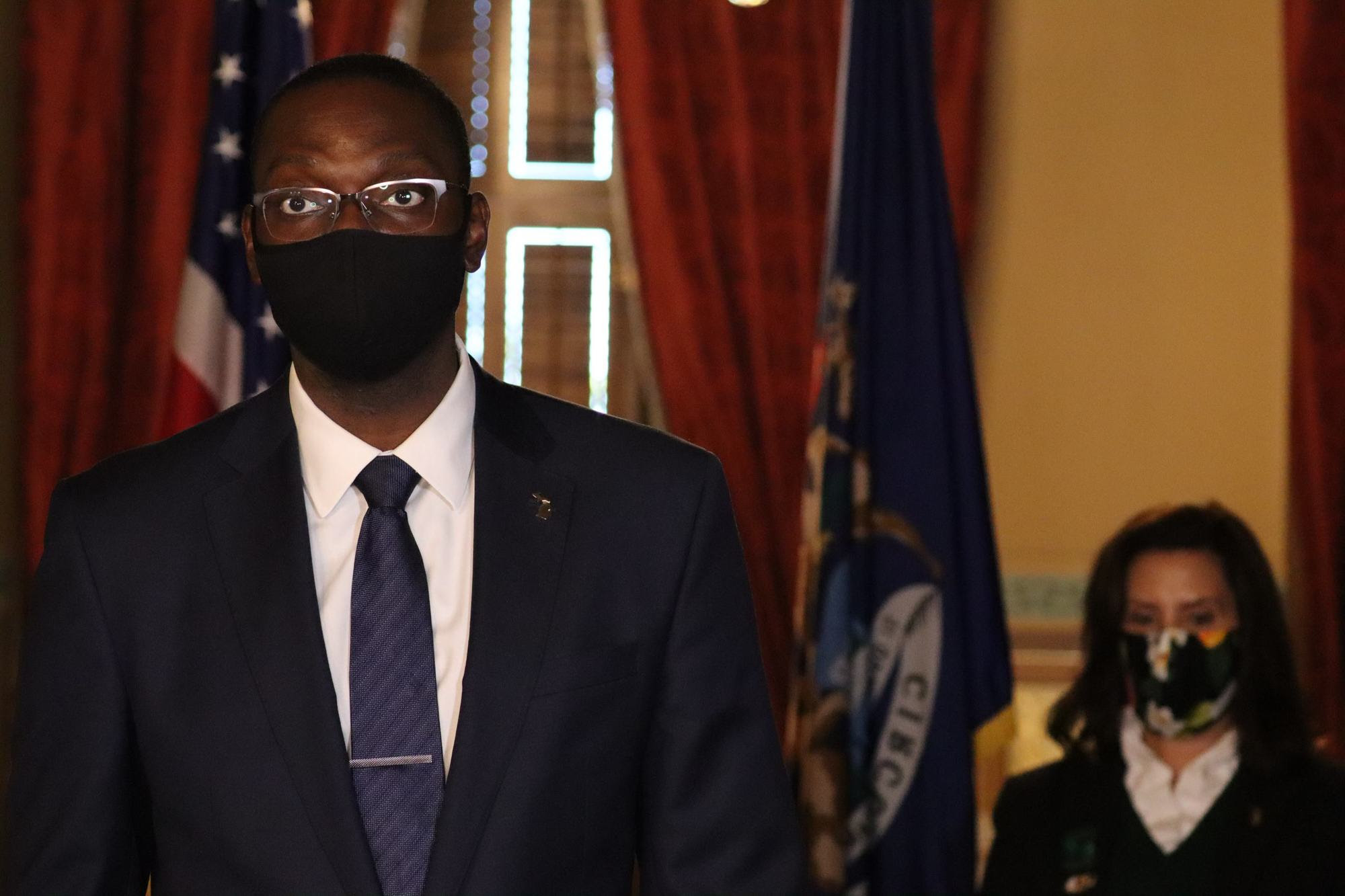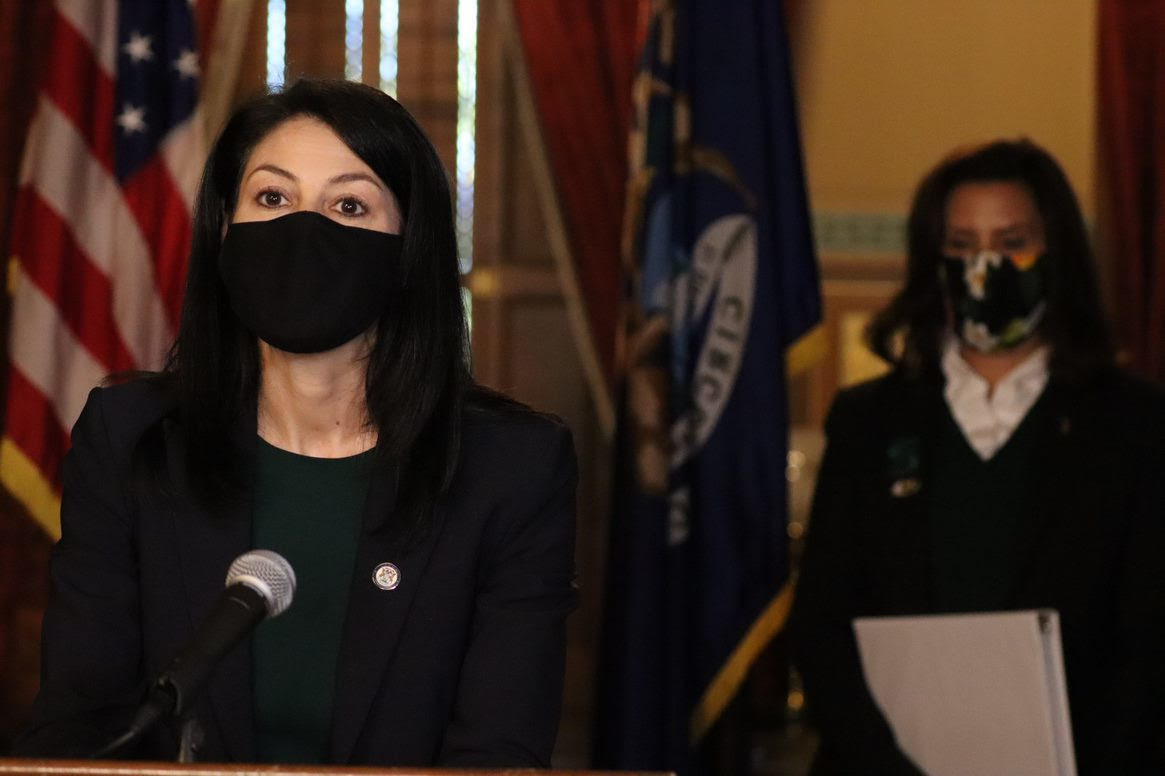
MPSC’s Winter Energy Outlook
MPSC’s Winter Energy Outlook: Overall energy demand expected to remain lower in Michigan amid COVID-19 pandemic while fuel usage for home heating increases
FOR IMMEDIATE RELEASE October 29, 2020
Media Contact: Matt Helms 517-284-8300
Customer Assistance: 800-292-9555
Michigan.gov/MPSC
Twitter
Despite a long-term forecast for a comparatively normal Michigan winter, demand for home heating fuel is expected to rise as more Michiganders continue to work from home during the COVID-19 pandemic, according to the MPSC’s 2020-2021 Winter Energy Appraisal released today.
The continued impact of the pandemic has thrown a curveball to forecasting, given unknowns about the potential impact of rising COVID-19 cases and delays in the reporting of energy data the MPSC uses for its projections. At the same time, the pandemic has upended typical energy use patterns — driving down business energy use while increasing residential energy demand.
Among the key findings in this year’s report:
- The industrial sector is expected to see a significant decline in natural gas use due to the impact of COVID-19 on regional and global economic activity.
- Retail propane prices started the heating season at an average of $1.66 per gallon, a 6-cent increase from the 2019 winter average, but a 1-cent decrease from this time last year.
- Electricity sales declined noticeably with the onset of COVID-19, and no supply shortages or transmission constraints are expected. Residential electric bills are generally higher, due in part to the prevalence of remote working.
- Demand for motor gasoline in 2019 declined for the first time since 2012, falling 4.3% to 4.6 billion gallons. The Energy Information Administration expects Midwest gasoline prices to average $2.02 in 2020, 46 cents lower than a year ago.
- Michigan produced about 5.1 million barrels of crude oil in 2019, down marginally from 5.4 million barrels in 2018, with prices for Michigan sweet and sour crude oil averaging about $50 per barrel and $45 per barrel, respectively.
Here’s the outlook by fuel category:
NATURAL GAS
- Key takeaway: Given the economic slowdown and business closures related to COVID-19, demand for natural gas in Michigan is expected to decline. Residential natural gas use, however, may increase for the 77% of Michigan households that use the fuel for home heating, as more residents work remotely from home.
- Supply: U.S. Inventories are up 9% over 2019.
- Cost: The fuel cost portion of natural gas bills are expected to be slightly lower than a year ago.
PROPANE
- Key takeaway: Supplies remain abundant and prices low.
- Demand: About 8% of Michigan households use propane as their primary heating fuel, and with more people working remotely, residential demand could rise. Another primary use of propane in Michigan is for drying harvested corn crops, but many Midwestern states, including Michigan, are showing corn progress ahead of the five-year average, indicating potentially lower use of propane for grain drying this fall.
- Supply: U.S. inventories are 3% above last year. Midwest inventories remain near the five-year average.
- Prices: Retail propane was stable in winter 2019-2020 and 14% lower than the year before. Wholesale prices heading into this year’s heating season were 1 cent lower than last year. The average retail price was $1.67 a gallon the week of Oct. 19, 2020.
ELECTRICITY
- Key takeaway: Electric demand in the MISO footprint declined considerably at the onset of COVID-19, which could lead to overall lower demand for 2020.
- Demand: A near-normal winter forecast may indicate slightly less residential electricity use. Industrial electricity use is expected to decline because of the impact of COVID-19 on the economy.
- Supply: No supply shortages or transmission constraints are anticipated.
- Prices: Year-over-year changes can vary significantly by utility. DTE Electric Co.’s prices were 5.2% higher in 2020 than the year before, while Consumers Energy’s prices were 0.6% higher. Certain areas of the central and western Upper Peninsula continue to pay the highest rates in the state.
MOTOR GASOLINE
- Key takeaway: Gasoline demand fell 1.3% in 2019 compared to the year before, and demand is likely to decrease again in 2020 owing to COVID-19’s impact on the economy. Demand was lower than the five-year average in the months of April, May and June 2020 by 47%, 31% and 14%, respectively.
- Demand: With the uncertainty of the pandemic, demand is likely to remain depressed.
- Supply: Marginally lower year-over-year Midwest inventory levels of 48.3 million barrels are likely the result of lower than normal refinery utilization.
- Prices: Prices as of Oct. 23, 2020, averaged $2.10 statewide, down 48 cents a gallon year over year. The Midwest is expected to average $2.02 a gallon in 2020.
DISTILLATE FUELS
- Key takeaway: Sales were down only slightly in 2019 compared to the year before. In the months of April, May and June 2020, demand for diesel fell by 18%, 16%, and 2%, respectively, compared to the previous five-year average.
- Demand: Demand will likely remain lower in 2020 due to COVID-19, although not as severely as motor gasoline.
- Supply: Midwest distillate stocks were higher entering fall 2020. National inventories are above the five-year average.
- Prices: On-highway diesel fuel prices as of Oct. 23, 2020, were $2.37, down 62 cents per gallon from the year before. Heating oil on Nov. 4, 2019, was $2.60, 36 cents lower than the year before.
Among significant developments in the state’s energy outlook:
Enbridge Energy filed an application with MPSC for authority to replace and relocate the segment of Line 5 crossing the Straits of Mackinac into a tunnel beneath the lakebed. The application seeks approval to replace the current two 20-inch pipes with a single 30-inch pipe. More information is available at www.michigan.gov/MPSCLine5.
The Midcontinent Independent System Operator (MISO) Planning Resource Auction for Local Resource Zones 2 and 7, which cover most of Michigan’s Upper and Lower Peninsulas, cleared at $5 and $257.53 per MW-day, representing an increase of $2.01 and $233.23 per MW-day, respectively. The significant increase in the Zone 7 clearing price is a result of the zone not meeting its local clearing requirement for resources located within the zone.
Read the full Michigan Winter Energy Appraisal by clicking here.
For help with heating bills or energy self-sufficiency, go to the MPSC’s webpage on utility assistance. Information also is available on Home Heating Credit and for help in home weatherization to cut energy costs.
For information about the MPSC, visit www.Michigan.gov/MPSC, sign up for one of its listservs, or follow the Commission on Twitter.









